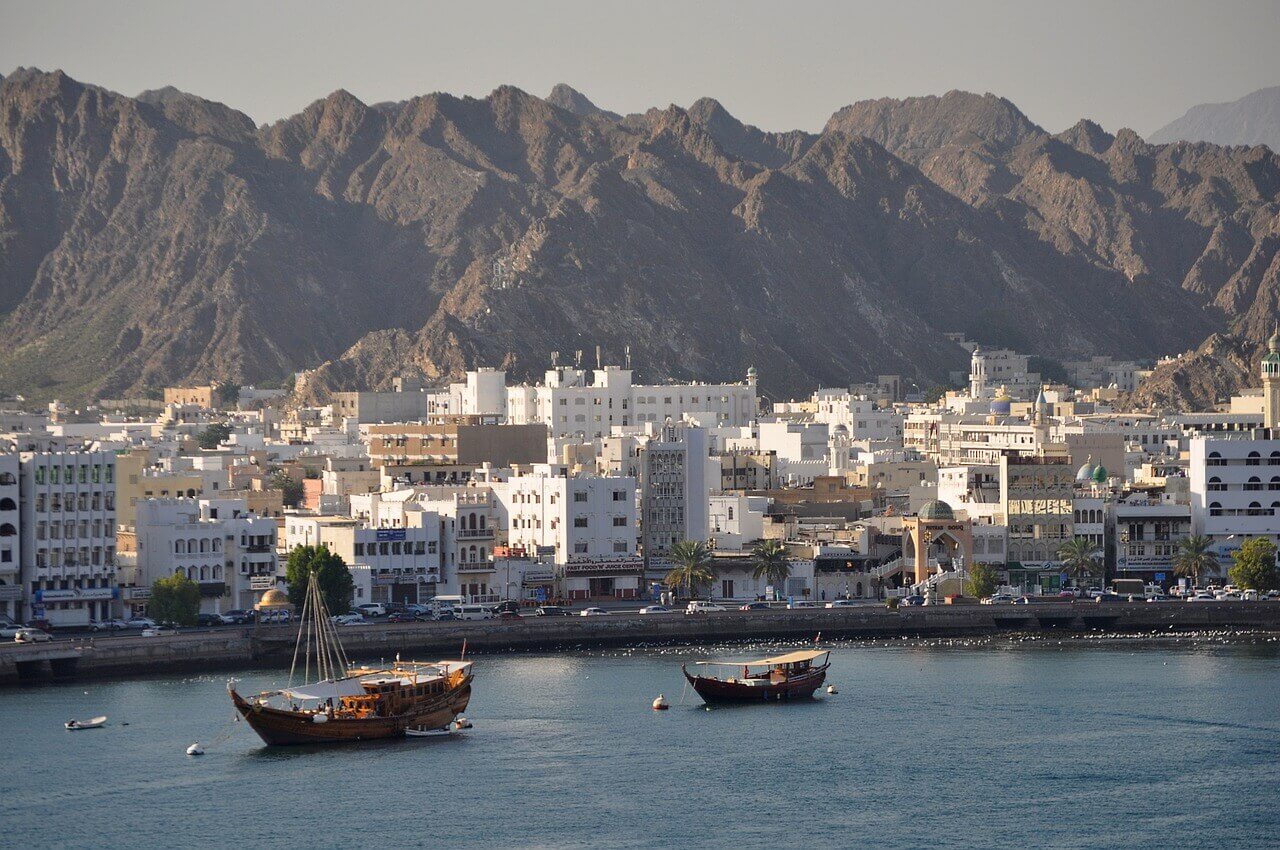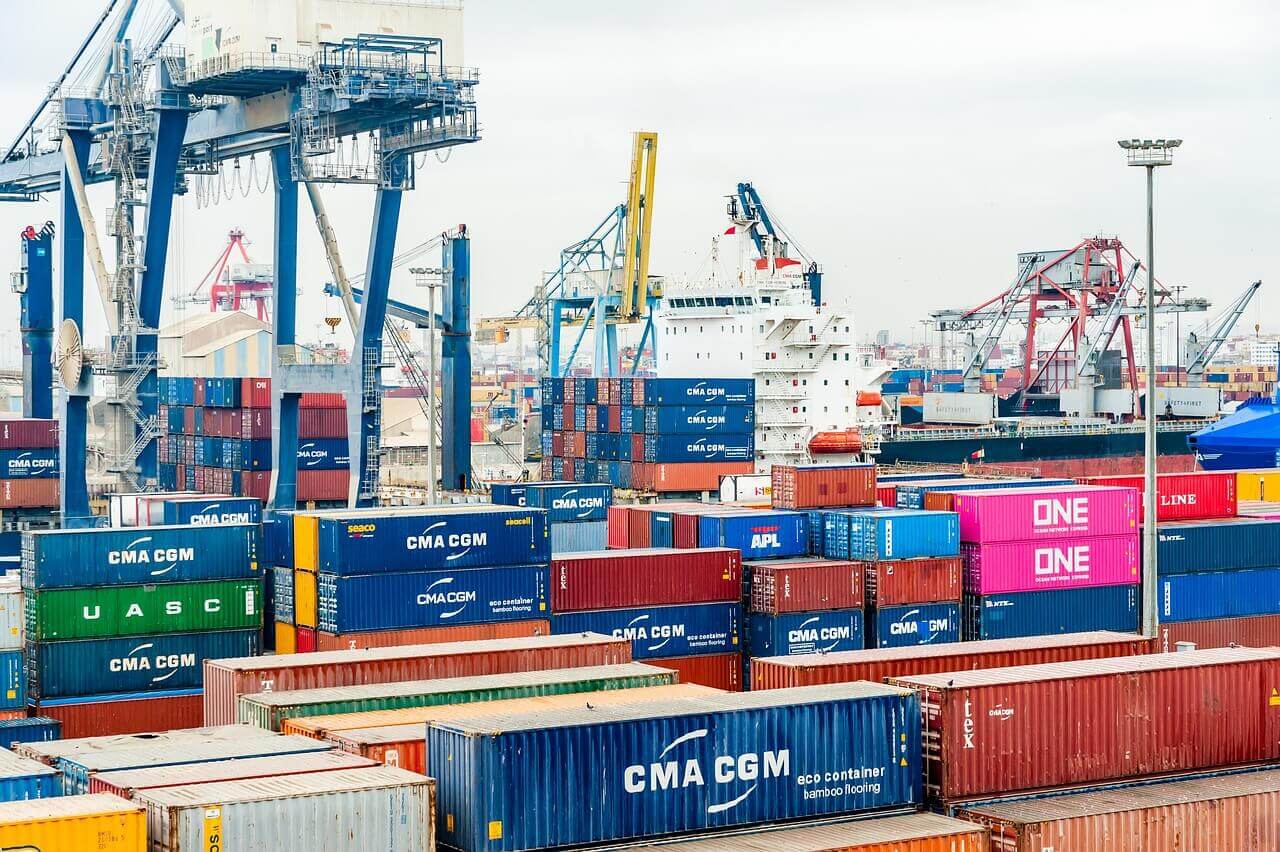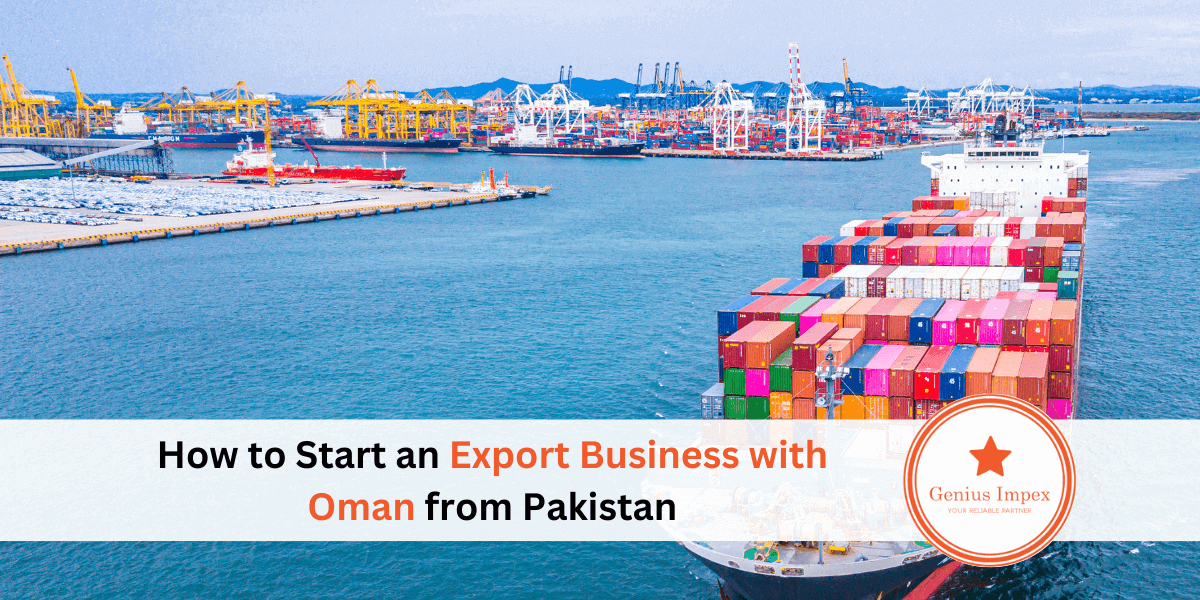Are you interested in starting an export business with Oman from Pakistan but still determining the process? Are you curious about Oman’s major export and import commodities and want to start an export business with Oman? Discover the essentials of import-export business in or with Oman through this article, including insights on finding importers from the region.
Nestled at the crossroads of the Middle East, Oman has emerged as a beacon of economic stability and growth, presenting an enticing prospect for entrepreneurs seeking to delve into the world of international trade. With its strategic location, diversified economy, and commitment to fostering business, Oman has become a key player in the global marketplace, providing a fertile ground for import-export business.
Oman’s geographical location at the southeastern tip of the Arabian Peninsula positions it as a vital gateway to the Arabian Sea and the Indian Ocean. This strategic position makes Oman an ideal trade hub, connecting the East and West. The country’s proximity to major shipping routes facilitates seamless trade, making it an attractive destination for importers and exporters.
Presently, Omani businesses are actively seeking collaborative ventures and partnerships in various sectors, including medical construction, road transport, construction and construction consulting, construction materials, commerce, furniture, aquaculture, floor tiles and marble trading, organic fertilizers, food, tourism, oil and gas services, electromechanical products, and electrical equipment. A significant export opportunity awaits you if your capabilities align with any of these sectors.
Business Environment of Oman: A Comprehensive Overview
 Oman, a jewel at the southeastern tip of the Arabian Peninsula, has cultivated a business environment that beckons entrepreneurs with its stability, strategic advantages, and commitment to economic diversification. As we delve into the intricacies of the Omani business landscape, it becomes evident that the Sultanate is not merely a geographical location but a dynamic marketplace ripe with opportunities.
Oman, a jewel at the southeastern tip of the Arabian Peninsula, has cultivated a business environment that beckons entrepreneurs with its stability, strategic advantages, and commitment to economic diversification. As we delve into the intricacies of the Omani business landscape, it becomes evident that the Sultanate is not merely a geographical location but a dynamic marketplace ripe with opportunities.
Political Stability and Governance
One of the cornerstones of Oman’s business environment is its political stability. The Sultanate has maintained a long-standing tradition of political tranquility, fostering a conducive atmosphere for business growth. The Sultanate’s governance, under the visionary leadership of Sultan Haitham bin Tariq Al Said, continues to prioritize economic development, offering a predictable and secure environment for businesses to thrive.
Economic Diversification and Vision 2040
Oman’s economy, historically reliant on oil revenues, underwent a significant transformation with the introduction of Oman Vision 2040. This ambitious roadmap outlines a strategic vision for economic diversification, emphasizing sectors such as logistics, tourism, manufacturing, and fisheries. As a result, the business environment in Oman is evolving, creating new opportunities for entrepreneurs beyond the traditional oil-based industries.
Investment-Friendly Policies
Oman actively promotes foreign direct investment (FDI) through investor-friendly policies. The Omani government has simplified bureaucratic processes, reduced red tape, and enhanced business efficiency. These initiatives are designed to attract both local and international investors, fostering a climate where businesses can grow and thrive.
Free Trade Agreements and International Collaborations
Oman’s commitment to global economic integration is evident through its participation in various free trade agreements (FTAs) and international collaborations. Oman enjoys trade partnerships with neighboring countries as a member of the GCC (Gulf Cooperation Council), providing businesses access to a broader regional market. Additionally, bilateral agreements with countries worldwide enhance Oman’s global trade relations, offering entrepreneurs a platform for international expansion.
Infrastructure Development
The Sultanate has invested significantly in developing a robust infrastructure to support business activities. Oman’s modern ports, including the Port Sultan Qaboos in Muscat and the Port of Salalah, are crucial hubs for maritime trade. Extensive road and rail networks enhance goods movement, contributing to overall business ease in the country.
Free Zones and Business Parks
Oman promotes trade-free zones and business parks to boost economic development and attract foreign investment. For instance, the Special Economic Zone in Duqm and Salalah Free Zone offer businesses a host of incentives, including tax exemptions and streamlined regulatory processes. These zones act as catalysts for innovation, fostering an environment where companies can operate with agility and competitiveness.
Skilled Workforce and Talent Development
Oman strongly emphasizes education and skill development, resulting in a competent and skilled workforce. The country’s commitment to nurturing local talent contributes to economic diversification and enhances the competitiveness of the Omani workforce.
Major Imports and Exports of Oman
Oman engages in various imports and exports, reflecting the diversification efforts in its economy. Here are some major import and export sectors in Oman:
Major Import of Oman
Oman’s major imports reached approximately $23.8 billion recorded in 2021. The top importing countries to Oman included the United Arab Emirates, China, India, the United States, UK, Germany, and Saudi Arabia.
- Machinery and equipment
- Construction material
- Chemicals and Petrochemical products
- Food and agriculture products
- Electronics and electrical equipment
- Floor tiles and marbles
- Furniture
Major Exports of Oman
Oman’s major exports amounted to approximately $42.3 billion recorded in 2021. The major export destinations for Omani products included China, Japan, South Korea, India, and the United Arab Emirates.
- Crude oil and petroleum products
- Minerals and ores
- Processed and refined petroleum
- Fish and seafood products
- Chemical products
How to start an export business with Oman
 Exporting goods to another country can be an excellent opportunity for businesses to expand their market reach and increase profits. This Middle Eastern country’s strategic location, stable economy, and growing demand for various products make it an attractive market for Pakistani exporters.
Exporting goods to another country can be an excellent opportunity for businesses to expand their market reach and increase profits. This Middle Eastern country’s strategic location, stable economy, and growing demand for various products make it an attractive market for Pakistani exporters.
However, starting an export business with Oman can be difficult for those unfamiliar with the country’s regulations and procedures. Read on to learn how to start an export business with Oman confidently and professionally.
Understand import regulations in Oman
Oman, being a member of the World Trade Organization (WTO) and the Gulf Cooperation Council (GCC), has established a set of import regulations that govern the importation of goods into the country. Exporters from Pakistan must familiarize themselves with these regulations to ensure a smooth and compliant export process.
Key aspects to consider are the required documentation, such as commercial invoices, packing lists, and a certificate of origin, and adhering to specific labeling and packaging requirements determined by the Omani authorities. Be aware of restrictions or licensing requirements for certain goods in Oman.
Research market demand
To effectively export goods to Oman from Pakistan, it is important to perform thorough market research to understand the demand and preferences of Omani consumers. By analyzing market trends and consumer behavior and identifying potential target markets, exporters can tailor their goods to meet the specific requirements of the Omani market. This research should encompass demographics, cultural considerations, pricing strategies, and distribution channels.
Obtain necessary export licenses
Exporters must obtain the necessary licenses to facilitate a successful export process from Pakistan to Oman. These licenses serve as legal documentation that permits the exportation of goods and ensures compliance with Pakistani and Omani regulations.
The trade license required may vary depending on the nature of the exported goods and the respective trade policies of both countries. Exporters should consult with relevant authorities, such as the Pakistani Export Promotion Bureau and the Omani Ministry of Commerce and Industry, to determine the specific licenses for their products.
Find local importers and build relationships
It is crucial for exporters to actively seek out and establish relationships with local importers in Oman to start an export business with Oman from Pakistan. Building these relationships is pivotal in expanding market reach, increasing sales, and ensuring a sustainable export business.
By connecting with local importers, exporters can tap into their knowledge of the Omani market, including consumer preferences, distribution channels, and regulatory requirements. To find local importers, exporters can leverage trade directories, attend industry events and exhibitions, and engage in targeted online research.
Read more: How to effectively find buyers for Export Business
Ensure product compliance with standards
Complying with these standards ensures the safety and quality of the exported goods and demonstrates a commitment to meeting the requirements of the Omani market.
It is recommended for exporters to thoroughly research and understand the specific standards and regulations applicable to their products in Oman, such as labeling requirements, product certifications, and packaging specifications. Engaging with regulatory authorities and seeking professional guidance can help exporters navigate the compliance process effectively.
Negotiate favorable payment terms
Exporters must negotiate favorable payment terms with their international buyers to successfully export goods to Oman from Pakistan. Establishing mutually beneficial payment terms can help mitigate financial risks and improve cash flow. Consider proposing incentives such as discounts for early payments or flexible payment options to attract buyers.
It is also essential to clearly outline the payment terms in a written export contract or agreement to avoid misunderstandings or disputes. Regularly communicate and build strong relationships with your buyers to ensure timely payments. By negotiating favorable payment terms, exporters can enhance their financial stability and establish long-term business partnerships with Omani buyers.
Read more: A guide to the payment procedure in export business
Prepare necessary export documents
Export documents are important to ensure compliance with international trade regulations and facilitate the efficient movement of goods across borders. Some essential export documents include the packing list, commercial invoice, certificate of origin, bill of lading or airway bill, and any specific documentation required by Oman’s customs authorities.
It is suggested to take guidance from experienced professionals or consult with relevant government agencies to prepare accurate export documents and timely submission. Accuracy and completeness are essential when preparing these documents, as any discrepancies or omissions can lead to rejection or even delay of the shipment.
Read more: Export procedure and documents required for export business
Ensure shipment meets packaging standards
Proper packaging protects the goods during transit and ensures compliance with international shipping regulations. This includes using appropriate materials, such as sturdy containers, padding, and secure seals, to safeguard the products from damage. Additionally, it is important to adhere to any specific packaging requirements set by Oman’s customs authorities.
Follow up with customer satisfaction
Once the goods have been successfully delivered to your customer in Oman, following up with their satisfaction is essential. Contact them to inquire about their overall experience with the imported goods and the delivery process. This shows your commitment to delivering excellent customer service and ensures that any potential issues or concerns are promptly addressed. Collecting feedback builds strong customer relations and fuels ongoing improvements in export operations.
Conclusion
Starting an export business with Oman from Pakistan may seem difficult initially, but following the necessary steps and regulations can be a smooth and successful experience. As a professional, it is important to stay updated on any changes in laws and procedures. Also, maintain open communication with customs officials and other parties involved. With proper preparation and attention, exporting goods to Oman offers profitable and rewarding trade opportunities for Pakistani businesses.










